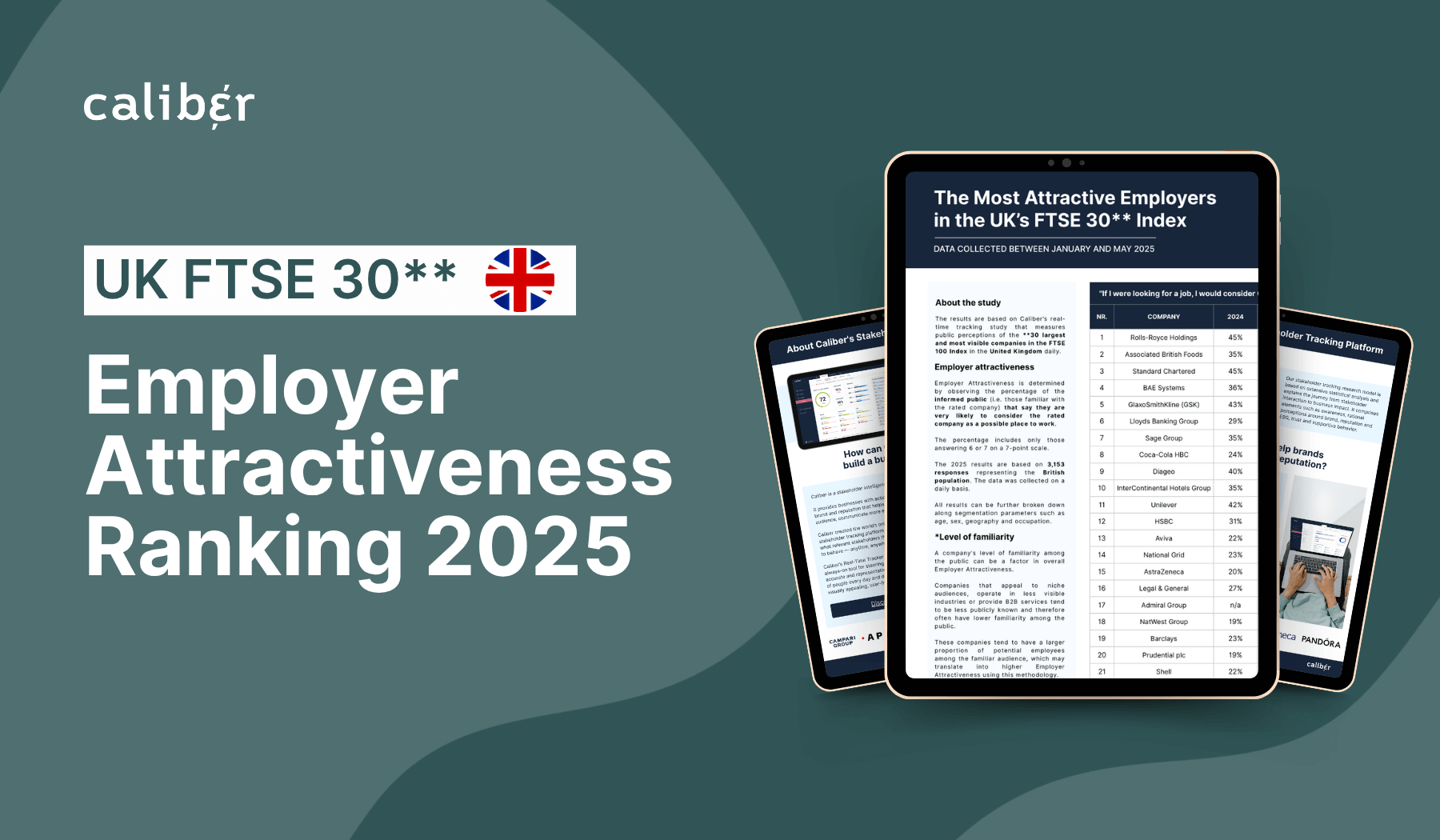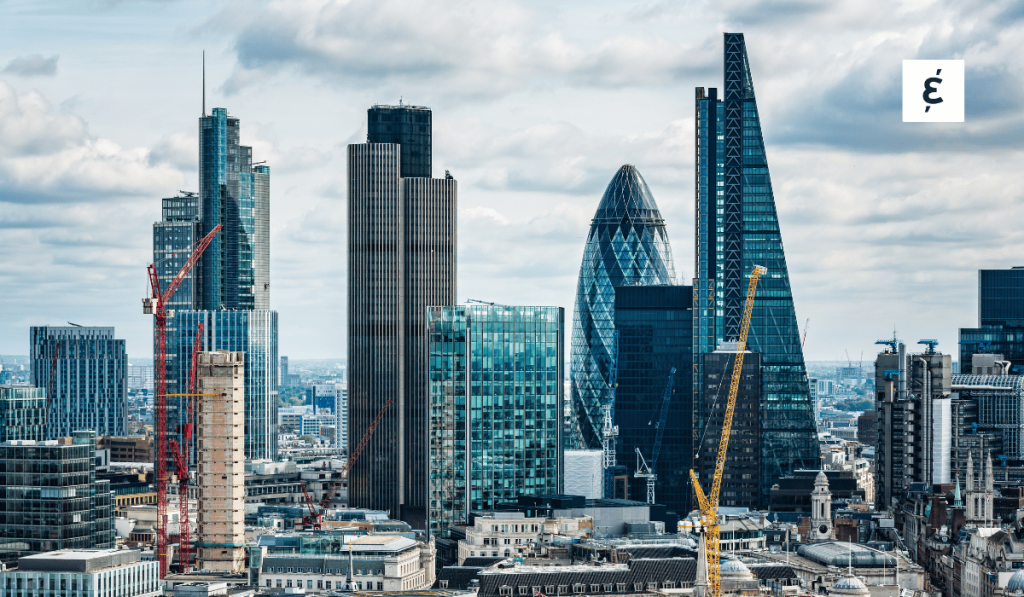

As we enter a new decade, let’s look back at the major moments of 2019 and uncover what the year had in store for the UK’s top 20 companies.
From record-high temperatures to hundreds of thousands taking to the streets in climate strikes, followed by the collapse of London-based travel agent Thomas Cook after 178 years in business, along with rising business costs, trade pressures, the ever-looming uncertainty of Brexit, a global economic slowdown and a general election – 2019 certainly had its challenges, especially for UK business.
While the UK economy ended 2019 in stagnation, it looks like public sentiment has kept steady. Despite mounting economic and political pressures, the average level of trust and affection towards business in the UK remained unchanged from 2018 to 2019.
A strong first quarter suggested that as trust in the political environment weakened, companies across the UK may have helped to bring stability and reassurance amidst the rising uncertainty.
However, the picture began to change as perceptions weakened in the second half of the year following the heightened anxiety surrounding the postponed Brexit decision at the end of Q1.
Though perceptions fluctuated throughout the year, overall the picture for the UK Top 20 remained largely the same with only a few significant changes.
Tesco becomes the UK’s favorite company, followed by Marks & Spencer and Sainsbury’s tied for second place, and ITV in third. Marks & Spencer, the former 2018 champion, struggled this past year in its clothing division with what has been called a “135-year-old broken business model” – and the public may be taking notice as the company moves from first to second place in the ranking with a nearly 3-point drop in its score.
A more significant decline, of over 4 points, is seen by another company – EasyJet. Despite being the world’s first major airline to offset all jet fuel emissions in 2019, people in the UK still felt the airline failed to win their trust – perhaps the backless seat Twitter storm and the way it was handled had something to do with that.
On the flip side, trust is apparently being restored in the financial sector. Lloyds Banking Group, HSBC, and Barclays were the only companies in the UK Top 20 to see a significant increase in public perceptions from 2018 to 2019.
However, the tide isn’t rising all boats as the government-owned Royal Bank of Scotland Group (RBS) seemed to buck the trend – taking last place in the ranking once again.
RBS seems to have suffered more than most in the fallout from the financial crisis, with criticism of the bank’s behavior followed by a string of scandals and a £45 billion taxpayer bailout, which degraded the perceived integrity of the bank.
As a result, RBS holds not only the lowest Trust & Like Score but also the lowest integrity score in the ranking.
Interestingly, a driver analysis in our recent Global Financial Study revealed perceived integrity to be of utmost importance in driving public trust and affection towards banks, while innovation was considered to be of least importance – in the UK and almost everywhere else.
It may be worth noting RBS’ strategy moving into 2019 was a focus on digital innovation. Could reassurance on the organization’s improvements and commitment regarding corporate culture, ethics, and behavior be the missing link to restore what was once the world’s biggest bank by assets?
Overall, public sentiment stagnated in 2019. Perhaps the continued political uncertainty left many organizations unable to plan for the future and therefore less capable of creating significant change.
With so much up in the air and an unprecedented combination of challenges for UK businesses, it is rather interesting to see a neutral trend while other countries in Europe are showing a general downward trend in corporate reputation.
The data does, however, show that sentiment is eroding among the older generations while younger people are proving to be more optimistic. Perhaps the much-talked-about age divide in UK politics applies in some other ways to people’s attitudes toward business.
© 2024 Group Caliber | All Rights Reserved | VAT: DK39314320